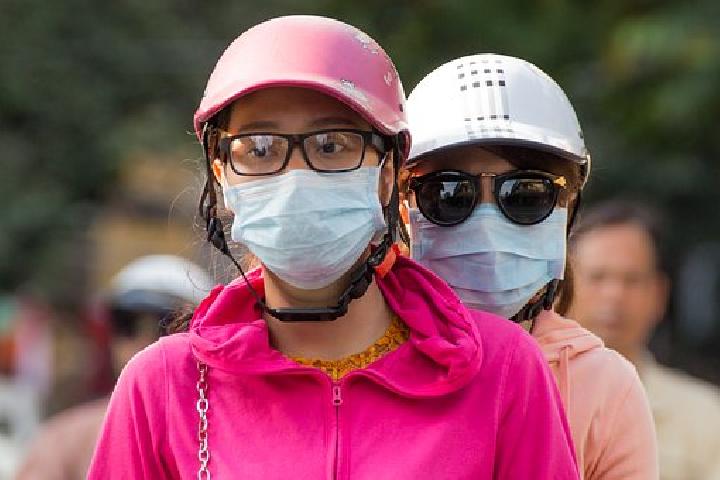
TEMPO.CO, Brazil - Ianka Barbosa was 7 months pregnant when she found out her child had microcephaly. Before the baby was even born, the father had gone.
Barbosa, 18, blames the break-up on her baby's abnormally small head and brain damage that doctors link to the Zika virus she contracted during pregnancy.
"I think, for him, it was my fault the baby has microcephaly," said Barbosa, wearing a blue dress and cradling tiny two-week old Sophia in a cramped bare brick house where she now lives with her parents in Brazil's northeast.
"When I most needed his help, he left me."
The house, which overlooks a polluted stream on the edge of a poor neighborhood, is now home to a family of nine. Only Barbosa's father has a job doing occasional building work.
Her ex-partner, Thersio, says he does not see Sophia, but avoids discussing microcephaly and blames Barbosa's parents for the break-up. "I gave her the choice, are you your parents' woman or mine ... And she chose her parents."
Single parents are common in Brazil where some studies show as many as 1 in 3 children from poor families grow up without their biological father, but doctors on the frontline of the Zika outbreak say they are concerned about how many mothers of babies with microcephaly are being abandoned.
With the health service already under strain, abortion prohibited, and the virus hitting the poorest hardest, an absent father is yet another burden on mothers already struggling to cope with raising a child that might never walk or talk.
At a specialized microcephaly clinic in Campina Grande, psychologist Jacqueline Loureiro works with mothers to help them cope with stress and trauma. Of the 41 women she counsels, she says only 10 receive adequate financial or emotional support from their partners.
"At first many of the women say they have a partner, but as you get to know them better you realize the father is never around and the baby and mother have effectively been abandoned," Loureiro said.
Loureiro blames Brazil's macho culture, which she says is particularly strong in the northeast.
Gender roles are strictly defined and women still tend to care for the baby and look after the household. The added burden of having a child with microcephaly strains this dynamic, says Loureiro, and often the man ends up leaving or refusing to help.
SPECIAL NEEDS AND DIVORCE
Much remains unknown about Zika, including whether it actually causes microcephaly in babies. Brazil said it has confirmed 745 cases of microcephaly since October, and considers most of them related to Zika infections in the mothers. It is investigating another 4,230 cases of suspected microcephaly.
Until the World Health Organization declared Zika a global health emergency last month, there was little interest in microcephaly and no data for its toll on parents. But studies into children with other special needs shows it substantially increases the chance of marital breakdown.
Jennifer Lewis, who runs the U.S. based Microcephaly Foundation and has a 12-year-old daughter with the condition, is not surprised fathers in northeast Brazil are abandoning partners and children. Her charity has a network of around 5,000 families and she says the majority are single mothers.
"I see single mothers all the time, where the fathers have left, the fathers have got scared. I even see married couples where the father has pretty much nothing to do with the child," she said in a phone interview from Phoenix, Arizona.
Campina Grande's health secretary, Luzia Pinto, told Reuters the city is planning to provide housing for mothers and children with microcephaly through a government housing program in order to help with the crisis. She also ensured a psychologist was hired at the clinic to offer support.
NO HELP FOR FATHERS
Few Brazilian jobs give enough flexibility for parents to better share the responsibility of looking after a child with special needs. This is made even more difficult as parents must often travel for hours to visit the few specialized clinics operating in Brazil.
At the clinic in Campina Grande, 20-year-old Rogerio dos Santos is one of only two fathers present. Standing in the whitewashed corridor, he says he's shocked by the tales of fathers abandoning their children but says it has been hard to get time off at the gas station where he works.
For fathers like dos Santos, the support network in Brazil is lacking. Whereas the clinic runs a support group for the mothers, there is no specific help offered for fathers.
"There is a certain amount of fatalism about fathers leaving, unfortunately," said Gary Barker, who promotes gender equality though ProMundo, an organization he founded in Rio de Janeiro 19 years ago and which now works in four countries.
For Barker, the health sector needs to offer support specifically for men.
"There needs to be an understanding that a baby being born with microcephaly is an event that is going to increase the chance the father's not going to stick around and he's going to need some extra hand holding," he said.
In the small town of Algodao de Jandaira, an hour from Campina Grande, Josemary da Silva pours a cold bath to relieve her son Gilberto from the relentless heat. The five-month-old baby with microcephaly stops crying briefly as he is washed in a pale blue plastic tub.
The father, after whom Gilberto is named, first saw his son one month after he was born and has rarely visited since. Two months ago he stopped contributing the $30 a month he had paid to help da Silva care for the child.
"He says he loves him. But what kind of love is this," she says as Gilberto starts to cry again.
REUTERS























